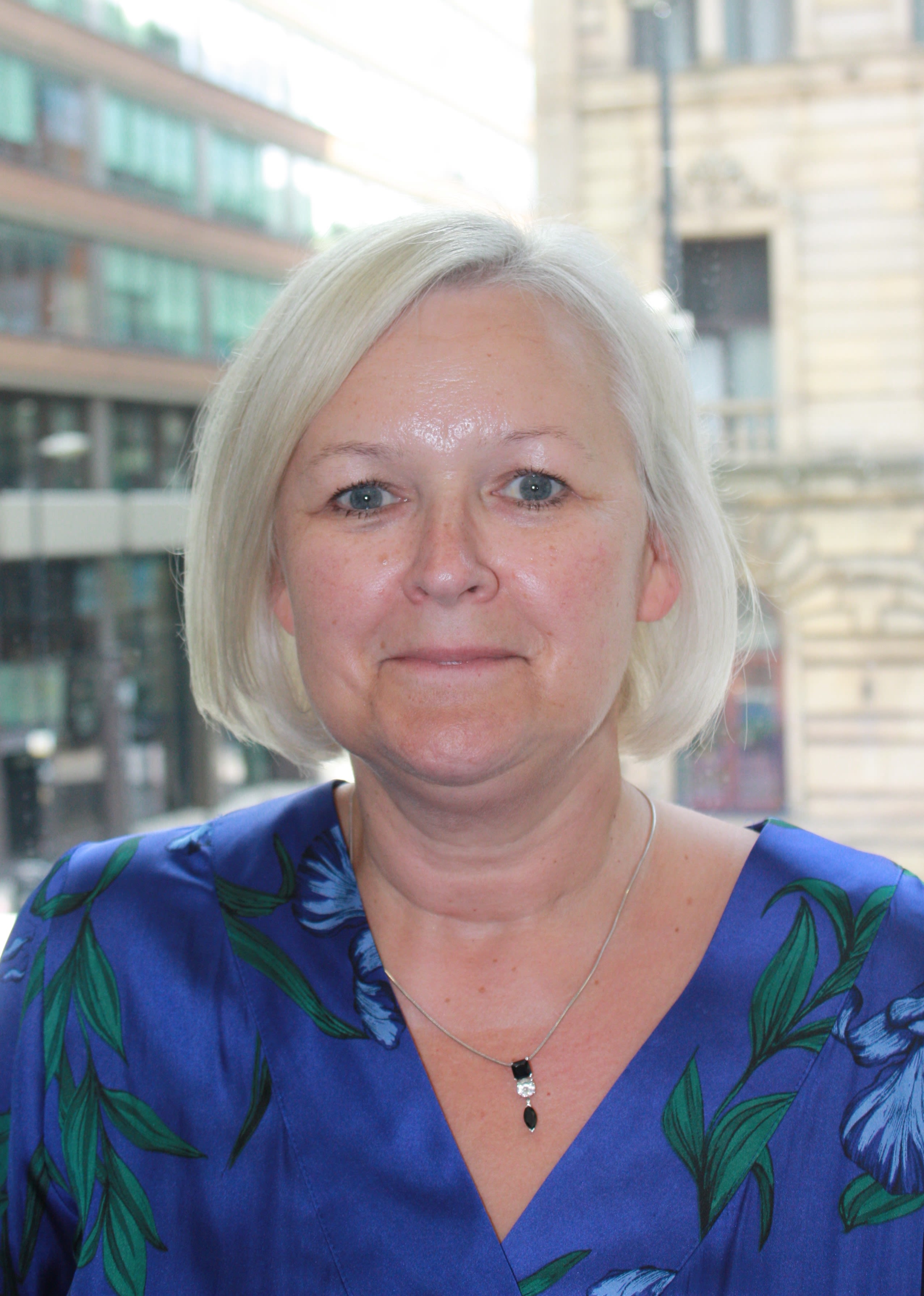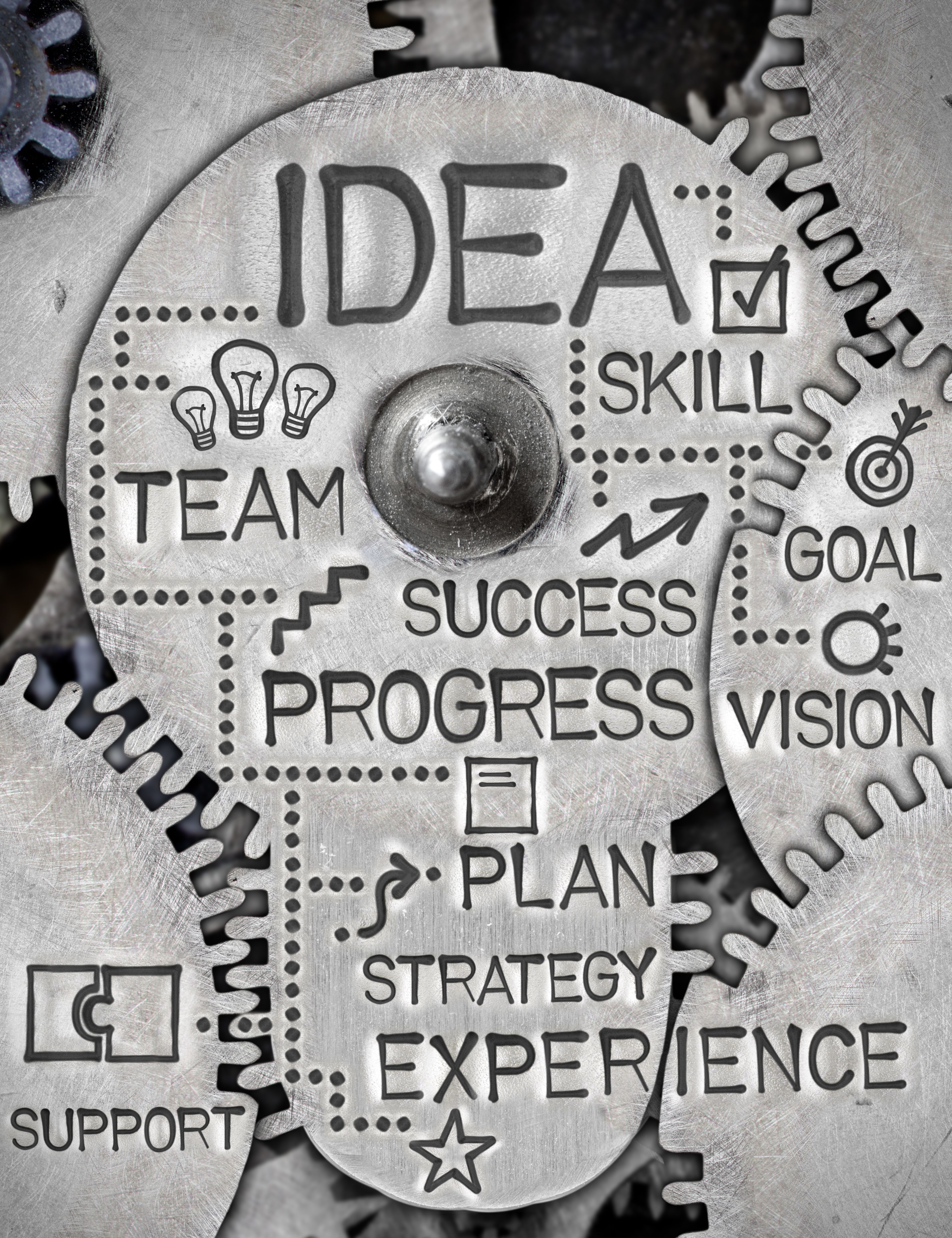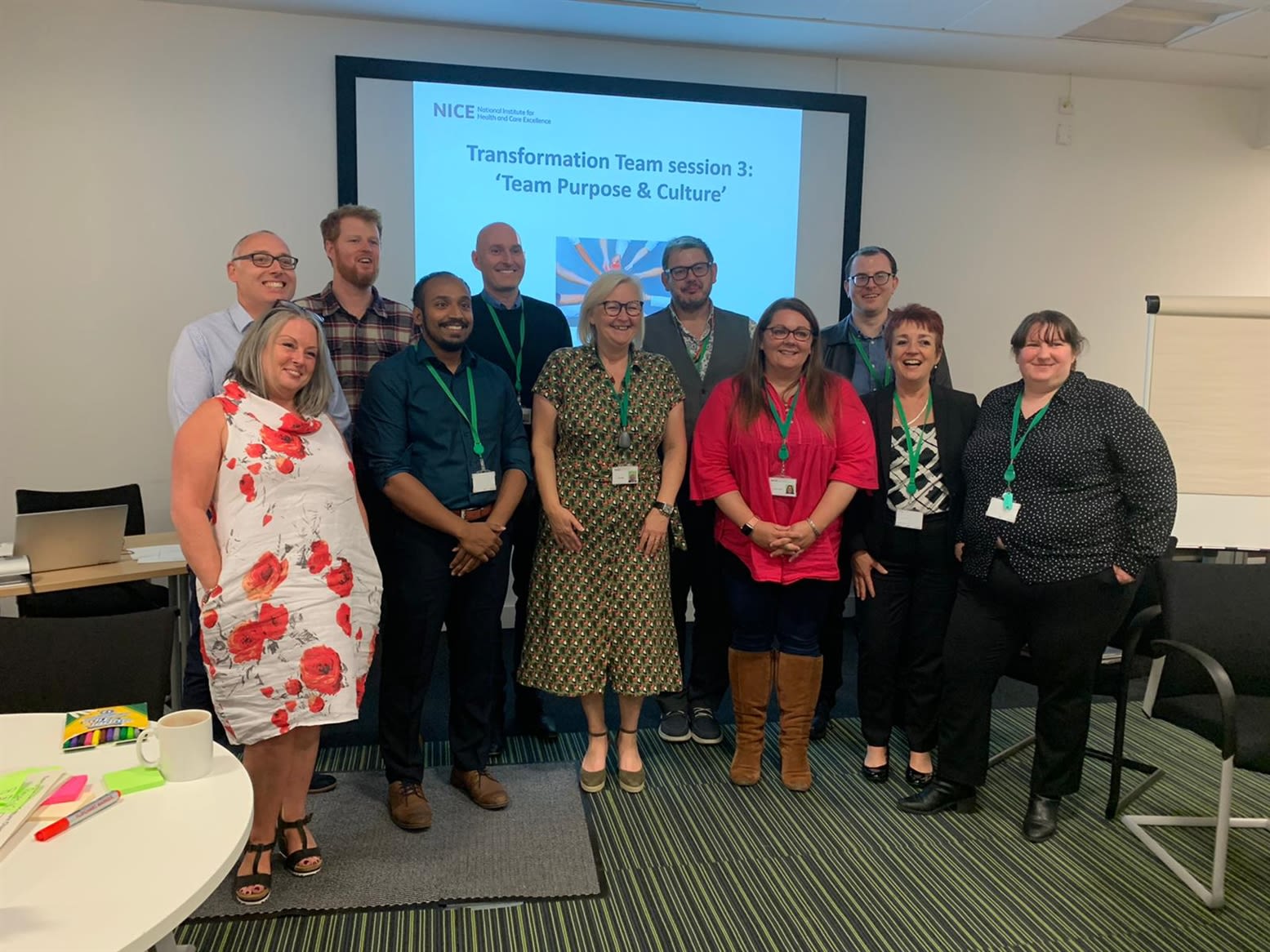NICE Transformation
Doing things differently to bring our organisational vision to fruition.


Hilary Baker, programme director - transformation
Hilary Baker, programme director - transformation
Making changes for the better
In a handful of words, the NICE Transformation programme has a simple purpose – to help bring our organisational vision to fruition.
In more words than that, the NICE Transformation programme is our ambitious, organisation-wide change programme, helping us to deliver our 5-year strategy. It does this by bringing together the many exciting change projects and cross organisational teams from across all 4 strategic pillars. Taking forward technical innovation, new approaches to data and content, process improvement, and building a positive workplace culture.
And it does not stop there. The programme aims to enhance our overall capabilities across the entire organisation. From change management and benefits realisation all the way to developing new skillsets and efficiencies within our workforce. NICE Transformation is building the foundation for the ongoing, sustainable change we need to keep up with our ever-changing environment.
Reflecting on the journey so far
Some colleagues may remember the very start of our transformation journey. Back then, it was known as ‘NICE Connect’. The programme started in 2018 and by 2020 it had identified and formed many of the goals we’re working to today. For example, key projects exploring content to reflect user needs led us to the content strategy that we know now.

Hilary Baker, programme director - transformation
We're here to help take NICE forward – not only in the direction as described in our strategy, but in growing the organisation’s capability to enable sustainable and impactful change. Our team purpose is 'By providing specialist skills to do things differently, we will help bring NICE’s vision to fruition, enable a positive change culture and achieve better outcomes.
Transformers - robots in disguise?
Ironically, the transformation work has evolved and 'transformed' over the years into a much wider change programme. To reflect this, NICE Connect was retired in July of this year, and re-emerged as NICE Transformation. Carrying forward all of the achievements and absorbing them into the wider focus.
As the programme has grown, so too has our transformation programme team - 'the transformers'. The team are certainly just as much of a force to be reckoned with as Bumblebee and Optimus Prime! They come armed and ready with an extensive range of specialist skills including:
- Portfolio management: The complex but essential framework to keep the many moving parts aligned. Making sure things are happening at the right time in the right order, all grounded in robust governance.
- Business analysis: Using a wide range of tools and techniques, including the lean six sigma method to support continuous improvement.
- Benefits realisation management: Focusing on outcomes and tangible impact.
- Change management: Recognising that our transformation ambitions are not only about our external stakeholders. It's just as important that our people (that's you) are at heart of our work.
- Programme and project management: Managing change, keeping things on course and never losing sight of the destination.
- Project administration, co-ordination and support: The critical supporting foundations without which, everything falls down.
With the imminent arrival of some newbie transformers on the horizon, the sky really is the limit for this team!


Meet the transformation programme team
Meet the transformation programme team
Aligning to our 5-year strategy
In our 'The strategy: the story so far' feature, our chief executive Gill Leng, touched on how we're adapting to deliver our strategy.
Our transformation programme is key to this, with work happening across 4 vital themes to align us with our strategy ambitions. These are:
- Process improvement: Exactly what it says on the tin! We need to improve our processes by streamlining and standardising them. This will improve our performance, enhance our user experience (internally and externally) and make us overall more efficient in everything we do. The ground-breaking changes happening with the integration of our guidelines is just one example of this. Making them easier to navigate, more accessible, living, and dynamic.
- Organisational and cultural change: This is where we focus on our people. Our most important asset. This includes collaborative working, creating a positive workplace culture, such as the introduction of new staff networks, and nurturing the skills and capabilities that reflect our future goals.
- Digital capability: We’re living in a digital world, and we need to keep up to stay relevant. We must be able to meet the demands of our users, making it easy for them to engage with us. From improving our website search function to using new technologies such as MAGICApp to ‘digitise’ our editorial processes. And this is not limited to our external stakeholders. Our Digital Workplace programme will enhance our internal productivity, user experience and organisational effectiveness.
- Information, data, and collaboration: Working with our system partners, we need to understand how to maximise the impact our guidance has across the health and care system. Learning to read what the data tells us so we can make sure our guidance grows in impact based on how it's used. This will also help us to overcome health inequalities, hitting those ‘harder to reach’ areas of society and contributing to consistent improvements in health across all areas.
Staying on track
There’s lots to do, with business objectives across various workstreams and teams. You can read more about how our transformation governance model keeps us all travelling in the same direction in Domini Lawson’s blog, ‘Our new approach to transformation governance’.


We want to create more collaborative and effective ways of working
We want to create more collaborative and effective ways of working
Organisational and cultural transformation
As one of the 4 key themes, organisational and cultural change is vital. Rigid structure and siloed working must be replaced with collaboration and agile working. Our talented workforce must be empowered to make decisions and enabled to develop beyond the boundaries of their job title. To have the freedom to work efficiently without obstacles such as inefficient technology, processes or procedure.
Future ways of working

We want to create more collaborative and effective ways of working
Change of this magnitude is a huge undertaking and by no means is it something that can happen overnight. But, this does not mean it cannot happen. In many ways, lockdown acted as a catalyst for this change. Forcing us to adapt how we work very quickly. As we re-emerge, work within our digital, information and technology and HR and OD teams is already underway to move us forward towards our future ways of working.
To support this, the transformation programme team helps to keep everything moving in the same direction, to make sure any changes bring real benefit for us all.
Working together
It's fair to say that collaboration is the team's 'bread and butter'. It's something they 'relish', and without it they'd end up in a bit of a 'jam'!
The work of our transformation team relies on subject matter expertise, enthusiasm, and quality contributions from colleagues to fulfil their role successfully. In fact, it would be impossible (or at least 'eat up' far too many words) to pick out all of the areas of the business the team work with!
But, when thinking about making change happen, the digital, information and technology, HR and organisational design teams are always highly prominent. They are crucial to harnessing our organisational and digital changes.
Realising the benefits
This way of working is common for transformation projects. And there are plenty of benefits to be had, including:
- sharing skills and resources between teams and projects
- open communications, helping knowledge move through the organisation
- more collaboration, making us more integrated and dynamic with less silo working
- more freedom and accountability.
Collaborative working
Of course, collaborative working is not actually new at NICE at all, especially within transformation work. The NICE-wide consultation project team is a great example of this in action. The team is made up of people from the Centre for Health Technology Evaluation, Centre for Guidelines and Communications Directorate, all retaining their own line managers while working to a transformation project manager.
To me, collaborative working is about giving people more of a say. Encouraging us to collectively contribute to a project, regardless of where we 'sit' within NICE.

"Working this way is so positive and empowering. It's great to share our views and see our skills and knowledge come together."
Geoff Ellison-Roberts, project manager in the transformation programme team

What does the future look like?
It’s an exciting time for us as an organisation. There's lots of change happening right now and planned for the coming year. Specifically around transformation, changes we'll start to see include:
- Digital Workplace: A 2-year programme of work focused on implementing easy to use tools and services that promote collaboration, exchange of ideas, information sharing and technological innovation.
- New standardised processes: Supporting our committee recruitment, declarations of interest, and consultation activities.
- Content strategy implementation: Looking at how we produce, present and measure our content. Improving governance processes, user experience and overall content maturity. You can read more on this in our July edition of NICEtimes.
- Life sciences hub: A source of information specifically for the life sciences sector on our website. A dedicated resource for life sciences industries (and others interested in our work). It'll provide a central place for information, including guidance on technology evaluation processes, and improved search functionality.
- Innovative licensing access pathway (ILAP): Putting in place the safe, timely and efficient product development processes for the approval of medicines. This will improve patient access and health outcomes for everyone.
- Real world data: Greater use and access to real world data that underpins our use of evidence.

The transformation programme team meet for their first face-to-face development session in the Manchester office
NICE paints an exciting, vivid picture of the future. Our role is to provide the engine to drive the transformation train forward and reach that destination. We’re not only here to plan the route, and navigate challenges along the way, but most importantly to take our users, stakeholders, and colleagues with us on this journey. Making sure that the changes we deliver not only land successfully but provide impactful and sustainable outcomes.

The transformation programme team meet for their first face-to-face development session in the Manchester office
The transformation programme team meet for their first face-to-face development session in the Manchester office

Everyone plays a role in shaping and influencing our future ways of working
Everyone plays a role in shaping and influencing our future ways of working
Transforming together
Everyone has a part to play in our transformation. It’s about making positive changes together, not imposed change from above. The transformation programme team are here to support us to achieve our goals. Working with everybody to shape and influence new ways of working for the benefit of the wider system, our stakeholders and for ourselves.

Everyone plays a role in shaping and influencing our future ways of working
Want to find out more about transformation? Head over to the NICE Transformation page of NICE Space. You can also subscribe to our monthly Transformation blog to get the latest updates from the team.
Enjoy this article?
Get in touch and let us know.